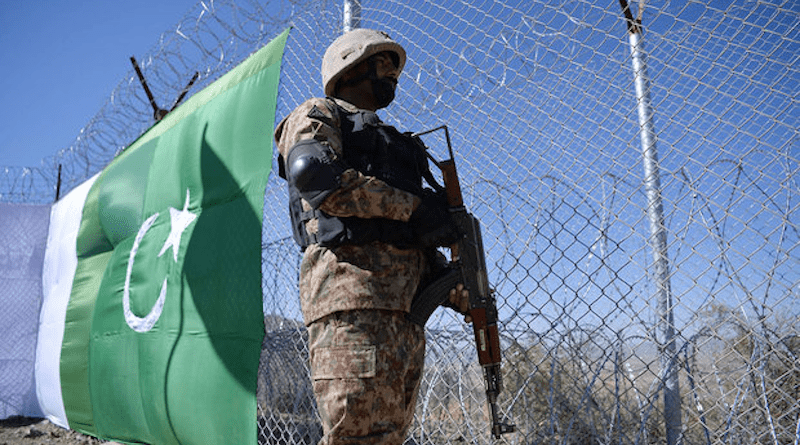Pakistan And Afghan Refugees – OpEd
By Asad Ali
The decision of the Government of Pakistan to repatriate all foreign nationals lacking valid and legal documents is grounded in international best practices and is justified. This includes a substantial number of refugees, particularly from Afghanistan, residing illegally in Pakistan without the required documentation or permits. The government, in its effort to maintain order and security, provided these illegal migrants and refugees with ample time to return to their home countries or preferred locations within a specified timeframe. Despite the presence of millions of legal migrants over the decades, a significant portion of Afghans in Pakistan lacked essential documents, making it challenging to monitor their activities across the country.
The context of militancy in certain regions of Pakistan further heightened the need to distinguish between peaceful residents and those potentially involved in undesirable activities. While there was no direct implication of illegal migrants in militancy, the government found it essential to differentiate between those living peacefully and those with potential security risks. In response to these challenges, the Government of Pakistan made a principled decision to repatriate illegal Afghans upon the expiration of the designated deadline.
Likewise, this decision aligns with the laws of the land and prioritizes the safety and security of both Afghan nationals and local residents. To facilitate the repatriation process, the government has established over forty-nine transit centers designed to temporarily house approximately 1.7 million undocumented Afghans. Control rooms at the Ministry of Interior have been set up to closely monitor the process, with oversight from various departments, including police, district administration, intelligence agencies, Nadra, Immigration, and PDMA. Adequate security measures have been implemented at holding centers, where security personnel escort migrants to border crossings. Notably, instead of detaining them in prisons, these individuals, including women, children, and the elderly, are accommodated in transit centers across all provinces and Islamabad, where they are treated with respect and provided meals and medical facilities.
Despite the government’s efforts to address the situation in a humane manner, there has been criticism from certain quarters within Pakistan and key individuals from the Interim Afghan Government (IAG). Some members of the IAG, associated with the Taliban, have issued threatening remarks, creating an additional layer of complexity. It’s important to note that there has been a gradual increase in militancy in Pakistan since the Taliban-led Interim Afghan Government assumed control of Afghanistan in August 2021. The Tehrik-e-Taliban Pakistan (TTP) is a significant militant organization responsible for carrying out attacks in Pakistan.
Estimates suggest that over 6,000 TTP militants are stationed in Afghanistan, utilizing various hideouts since military operations targeted them in conflict-prone areas. During the previous Afghan government under Ashraf Ghani, these elements operated with support from Indian RAW and Afghan NDS. After August 2021, TTP escalated its activities against Pakistan from across the Pak-Afghan border, despite assurances from the Taliban government that Afghan soil would not be used by any militant organization against neighboring states. In addition to TTP, there are instances of Daesh and Baloch separatists exploiting Afghan soil for launching attacks within Pakistan.
The IAG’s recent statement, as conveyed by spokesperson ZabiullahMujahid, asserting that the TTP issue belongs to Pakistan and not Afghanistan, adds a layer of ambiguity. While it emphasizes the sovereignty of Afghanistan, it contradicts the IAG’s commitment to preventing Afghan soil from being used by militant organizations against neighboring states. TTP remains a significant concern for Pakistan, and the assertion that it is solely Pakistan’s problem does not align with the ground realities.
Despite Afghanistan being a fraternal neighbor, Pakistan has refrained from engaging in a blame game with the IAG. However, ground realities cannot be ignored. Reports indicate that arms and ammunition left behind in Afghanistan by the U.S. are being utilized by TTP, challenging Kabul’s claims that TTP is not using Afghan soil against Pakistan. The surge in militancy along the western borders of Pakistan is a serious development, and the IAG must take decisive actions against TTP and all terrorists hiding in Afghanistan, utilizing its soil for attacks against Pakistan. Pakistan, for its part, has consistently urged the Taliban-led IAG to establish its authority in the country and curb the militant activities of all organizations operating from Afghan soil.
It’s crucial to acknowledge that over 3 million Afghan refugees have been residing in Pakistan for decades, treated as equals without discrimination. This generous hospitality and open-heartedness have set a precedent globally, showcasing Pakistan’s commendable accommodation of its Afghan brethren. As the government initiates the repatriation of illegal migrants to their homeland, it ensures a dignified and respectful process in accordance with the law. Both the IAG and all segments of Pakistani society should recognize and appreciate the peaceful and respectful return of these foreign nationals, aligning with the principles of the law of the land.

